 June 26, 2019. In 2015,
Patrick joined AIU
where he obtained
his Master’s degree in
Business Administration,
and in Strategic
Planning and Leadership.
He is currently completing
a PhD program at AIU
in the same major.
June 26, 2019. In 2015,
Patrick joined AIU
where he obtained
his Master’s degree in
Business Administration,
and in Strategic
Planning and Leadership.
He is currently completing
a PhD program at AIU
in the same major.  June 14, 2019. One of
our students, Sergio
Marcelo Arciénaga
Morales, has been
selected in a national
competition in his
country Argentina, as
a Pedagogical Reference
in the Remote Classes
of Computational Thinking
project. Sergio is in charge of
the Sadosky Foundation, a
prestigious institution in his
country, a reference in all that
is Education and ICT. The text
where this appointment is
reported is as follows:
June 14, 2019. One of
our students, Sergio
Marcelo Arciénaga
Morales, has been
selected in a national
competition in his
country Argentina, as
a Pedagogical Reference
in the Remote Classes
of Computational Thinking
project. Sergio is in charge of
the Sadosky Foundation, a
prestigious institution in his
country, a reference in all that
is Education and ICT. The text
where this appointment is
reported is as follows: July, 2019. These graduate students completed the majority of
the requirements to obtain honors, which included a 4.0 GPA,
published works, recommendation from their respective advisors,
patent a product, etc. Congratulations to both of them!
July, 2019. These graduate students completed the majority of
the requirements to obtain honors, which included a 4.0 GPA,
published works, recommendation from their respective advisors,
patent a product, etc. Congratulations to both of them!
 July 10, 2019.
July 10, 2019.
 As you may know, since June 12th to July 12th we invited all the students to upload a picture and Change in Organizations
that represents something beautiful in their countries or some dream they already achieved
(travel, family, professional). The participation was great and we managed to have 230 images
uploaded by our students.
As you may know, since June 12th to July 12th we invited all the students to upload a picture and Change in Organizations
that represents something beautiful in their countries or some dream they already achieved
(travel, family, professional). The participation was great and we managed to have 230 images
uploaded by our students.
 Call for Papers
Call for Papers| Castro Marques Bachelor of Science Information Security Angola |
David Mingas Zau Master of Science Procurement and Suppl y Chain Management Angola |
Martin Alexis Gomez Bachelor of Legal Studies Legal Studies Argentina |
María Viviana Maranzana Doctor of History History Argentina |
Olga Martens Geb. Dorn Bachelor of Science Healthc are Administration Bolivia |
Pedro Correia Porto Master of Business Administration Business Administration Brazil |
| Langha Michael Ngwa Doctor of Business Administration Business Management Cameroon |
Carlos Alberto Martinez Castellon Bachelor of Science Public Health Cayman Isl ands |
Deuzoumbe Daniel Passalet Master of Legal Studies Human Rights Chad |
Siegfried Stadler Bachelor of Marketing Marketing China |
Martin Barnard Bachelor of Business Comm unication Communication China |
Luis Eduardo Manotas Solano Doctor of Science Infectious Diseases and Entomology Colomb ia |
| Saturnin Matsalou Doctor of Philosophy Industrial Engineering Denmark |
José Silvestre Quezada Sánchez Doctor of Marketing Marketing in Agriculture Dominican Republ ic |
Gil de Jesús Perez Bachelor of Science Industrial Engineering Dominican Republic |
Denny Altagracia Castro Fabián Master of Science Biology Dominican Republic |
Maria Auxiliadora Mosquera Samaniego Master of Science Health Science Ecuador |
Sandra Elizabeth Vega Chávez Bachelor of Business Administration Business Administration Ecuador |
| Maritza Ruiz de Campos Post-Doctorate of Education Admin. Mgmt. in Higher Ed., EQ, and IT El Salvador |
Sunday Eze Ikeokwu Bachelor of Legal Studies Legal Studies Germany |
Nelson Armando Francisco Bachelor of Business Administration International Commerc e Germany |
Chakir Yahyaoui Doctor of Science Renewable Energy Germany |
Malachi Kwame Sasu Doctor of Economics Economics Ghana |
Melvin Marconi Deras Cordòn Doctor of Finance Finance Guatemala |
| Maria Eugenia del Rosario Tabarini Soto Bachelor of Science Psych ology Guatemala |
Jean Philippe Creve-Coeur Master of Project Management Project Management Haiti |
Gabriel Eduardo Granados Cuellar Bachelor of Business Administration Business Administration Honduras |
Deepthi Puthenpurayil Sandhya Bachelor of Arts International Relations India |
Kadra Nuru Abdullahi Bachelor of Science Public Health Kenya |
Mamu Jallah Amaigwe Master of Business Administration Acc ounting Liberia |
| Pelwin Norman Bachelor of Education Education Micronesia |
António José Chemane Doctor of Philosophy Business Negotiation Mozamb ique |
Hilário José L. Tamele Master of Science Telecommunications Mozamb ique |
Paulus T Egodhi Master of Science Public Health and Nutrition Namibia |
Anjikwi Yusuf Dibal Master of Science Industrial Micr obiology Nigeria |
Abayomi Dalmeida Jackson Bachelor of Science Mech anical Engineering Norway |
| Virginia Itzel Quiroz Ortega Bachelor of Arts Linguistics Panama |
Dariana Analeidy Atencio Doctor of Science Mathematics Panama |
Yeiseth Arelys Castillo Tapia Doctor of Education Physical Education Panama |
Amparo del Rosario Castillo Vigil Doctor of Science Research in Tropical Diseases Panama |
Elmer Jesus Ramirez Vega Bachelor of Economics Economics Peru |
Garcia Umeres Edith Bachelor of Science Human Psych ology Peru |
| Walther Orlando Molina Alvarado Bachelor of Science Mining Engineering Peru |
Jorge Cayetano Deliot Deliot Muñoz Bachelor of Science Nutrition Peru |
Mateus Calala da Silva Pedro Bachelor of Architecture Arch itecture and Civil Construction Portugal |
Dalia Hashim Mohamed Mahmoud Master of Science Clinical Pathology Qatar |
Fahd Mohammed Yaqoob Doctor of Philosophy Marketing Saudi Arabia |
Oumar Mangane Doctor of Literature Spanish Literature and Literary Theory Senegal |
| Fairul Abdullah de Souza Philip Ignatius Master of Arts Education Singapore |
Nazar Talib Abdu Juma Bachelor of Logistics Business Management South Sudan |
Princess Abisoye Dosunmu Doctor of Publ ic Health Public Health United Kingdom |
Jarungjit Tiautrakul Doctor of Philosophy Marketing United Kingdom |
Martina Fabricci Bachelor of Science Marine Biology United Kingdom |
Antonio Laguerre Bachelor of Science Electrical Engineering USA |
| Angelica Susana Traubeck Master of Legal Studies Legal Studies USA |
Jimmy De La Fé López Bachelor of Science Hydr aulic Engineering USA |
Leo N. Mancini Doctor of Science Kinesiology USA |
Walter Omara Bachelor of Science Bioengineering USA |
Carlena Prince Castillo Bachelor of Social and Human Studies Psych ology USA |
Emmanuel Ndubuisi Unegbu Certificate of Science Psych ology USA |
| Trunos Grison Master of Science Public Health Zimb abwe |
|||||

 Pricila Gertrude Mindjae Meyong
Pricila Gertrude Mindjae Meyong Sheku Ahmed Kamara
Sheku Ahmed Kamara João Paulo Gomes Rocha da Silva
João Paulo Gomes Rocha da Silva
Ethics is a reflection on
the values that guide
and motivate our actions.
Ethical thinking has to do with
conceptions of good, correct
and human fulfillment. She
answers questions such as:
• What is most important
in life?
• What are we trying
to achieve?
• What kind of relationships
do we want to
maintain with others?
While morality defines principles
or general laws, ethics
is an individual disposition to
act in accordance with the virtues,
in order to seek the right
decision in a given situation.
Morality does not integrate
the limitations of the situation.
On the contrary, ethics only
makes sense in a situation.
Morality ignores the nuance,
it is binary. Ethics admits discussion,
argumentation.
The focus of professional
ethics should be based both
on the moral dimension
(principles can not be ignored)
and on the ethical
dimension (which decision
is the best one in the present case?). When this reflection
becomes collective and is the
object of a formalization, the
approach becomes deontological,
in a broad sense. If these
rules have value for an entire
profession and are officially
recognized, this is a deontology
in the strict sense.
What are the development
factors of ethical
management
The general discourse of
companies or specialists in
management sciences insists
more and more on the ethical
dimension of the company.
But this is not taken into account
in managerial practices,
in the absence of a model that
integrates the concepts of ethics,
morals and ethics, and the
perception of the actors in the
profession.
A true development of ethics
in practices implies a rigorous
method that combines
theory with the experience of
professionals. The stakes are
high since ethics has a positive
impact on all aspects of
the administration:
• Management of long-term
objectives, ethics / strategy.
• Help with analysis / decisions
with strong bets
• Conflict resolution through
discussion and consensus.
• Integrating the point of view
of the different actors.
• Empowerment of employees
/ total quality requirement.
• Reduction of control and
transaction costs.
• Corporate culture, common
values, team cohesion.
How to approach
professional ethics
Ethics can be approached by
values or virtues. The virtues
approach allows understanding
the ethical dimension of
the decisions in a coherent
and structured way. The virtues
that can be described as
cardinal are the following: (See
image 1).
The virtue approach has advantages
in terms of method.
The virtues are dispositions to
act; they allow a decline of the
ethics in the reference behaviours,
in a certain profession.
How to evaluate
ethics in a professional
practice
The evaluation of ethics
poses a series of problems.
When the objective is not
control (which seems desirable
in the context of a project to
allow actors in the field to take
ownership of the approach), a
self-evaluation system must
be implemented. This system
can be biased using conventional
survey techniques.
That’s why it’s better to use
a projective method: the stage
method. This method consists
of placing people in situations
typical of decision problems
in the profession and proposing
that they analyze them.
This approach is based on
simulation decision making.
The various possible decisions
are presented to the
individuals who will be able to
evaluate them from different
angles. This evaluation
allows positioning individuals
(through an online system that
guarantees their anonymity)
and identifying the situations
that pose the most problems
in a particular business or
business.
What are the results
of an evaluation of the
perception of ethics?
The implementation of an
approach to analysis of the
dimensions of professional
ethics by management is:
• A method to better meet the
needs of its employees.
• An approach to encourage
teams in an innovative way.
• Tools to reinforce the ethics
in the professional values of
the company.
• Greater security in operational
management and
decisions.
• A reassuring communication
with clients and partners.

This small statement, how
many images brings to the
thought of the inhabitants of
this beautiful Blue Planet?
Our society in the 21st century
is being manipulated by
marketing so that most of the
people think about is: I must
have the biggest house in my
neighborhood, I must have
the state-of-the-art car brand,
I must have a bank account
with a lot of money, I must
have the most beautiful body
according to the advertisers of
this or that product.
The question is: Why
is it that 10% of the world population that owns wealth
is not happy?
Life goes on and people say:
I have to reach this goal and
I will be happy. For example,
young people say: when I finish my studies I will be happy,
when I get that particular
job I will be happy.
People with children say:
when my child is an adult I
will be happy.
When I retire, I will be happy.
Others say: when I recover
my health I will be happy.
It seems that a very high percentage
of human beings will
be happy when they achieve
there goals and when that happens
it seems that they have
another goal to achieve.
It seems that life is passing
and only a few ones can say:
“I am happy.”
The question is: Why do
human beings set their goal to
be happy when they achieve
something and are not happy
every single day of their lives?
The day has 24 hours and
so in those 24 hours there are
some complicated moments
but other hours we will make
them agreeable.
Why does happiness always
become a hope instead of being
a reality at that moment?
Are we only human beings for tomorrow? Where is the
“now”? What happens according
to Erich Fromm, in his extraordinary
work written many
years ago, “We are what we
have or we are what we are?”
The concept of “being
happy” it is not having.
But as the popular proverb
says: happiness is not having
money nor material things, but
they help a lot.
The concept of “being
happy” is something to be
worried about.
We have organizations,
such as the United Nations
(UN), which have projects
aimed at making people
happy now. Its 2030 agenda
for sustainable development
seeks economic, social and
environmental wellbeing for
the 193 member states so that
their partners generate in
their countries the now for all
its inhabitants and stop being
only for 10% of the world
population.
The first thing to be happy
is to know: Who am I? What
skills do I have? What intelligences,
according Gardner, do I
have? In order to develop them,
otherwise I will walk through
life learning from mistakes until
I find who I am.
If I know my skills I can
model them and take advantage
of them and ease doing
things every day in the best
way with the least energy expenditure.
The above will allow
me to feel physically better.
The second thing to be
happy has to do with my skills
and my area of knowledge at
the highest point of development.
Where can I offer the
labor market what I know
and how to excel because I’ve
already been educated in it?
We would say: where is my
opportunity range?
That would be the organization
that would allow me to
have a job where I would be
happy because I am growing in
what I do and what I like to do
If I build my life in that way I will be in the right place of
opportunities and will not
be part of those that Deaton
refers to in The Great Escape.
Health, wealth and the origins
of inequality.
An organized life to be happy
is achieved because people
no longer live to accumulate
goods; you live to be a human
being that develops what you
have as a human being and in
the right place. This will buy
what you need and your life
is no longer the desire to have
and work beyond what the
body can achieve.
People building their lives
in this way will have time for
many good activities that this
21st century has.
What happens to people
who are senior citizens?
They would also enjoy the
withdrawal stage because it
would not be the punishment
of the society because physically,
it is supposed, they have
their faculties in wear.
It may be the time to study
what you could not before. It is
also a great time to take advantage
of learning the subjects
that they couldn’t achieve.
There is also an extraordinary
thing that older adults
have: the accumulation of
experiences that they can offer
to the youngest.
The society has many social
assistance organizations in
which the experience of the
elderly is very useful.
Also within the families can
be the counselors of young
people because the minors are
always interested in what the
Grandfather, the Grandmother
or the Uncle did.
Every human being can make
his life a day to day to acquire
the ability to be happy that day
and not to spend it in tomorrow,
and tomorrow, buying and
buying and always the same
desire reaching very little.
Let’s get to work:
think what we are doing
wrong.
Let’s get to work:
building our lives and
being happy today!
We can be happy at
any stage of our life we
are in, but it has to be
today and now!
BIBLIOGRAPHY. Comte-Sponville, A. (2001). LA FELICIDAD
DESESPERADAMENTE. España: Paidós. | Deaton, A. (2015). El
Gran Escape. Salud, riqueza y los orígenes de la desigualdad.
México: FCE. | Fromm. E. (2009). ¿tener o ser?. México: FCE. |
Naciones Unidas, página oficial. Recuperado de http://www.
un.org/es/index.html | Organización de las Naciones Unidas
para la Educación, la Ciencia y la Cultura (UNESCO), página
oficial. Recuperado de http://www.unesco.org/new/es

Do you ever have moments
when you are not sure
what to do in an assignment?
Then you get a mental block that
keeps you from completing an
assignment? Do you have moments
when you do not know
even which course to study or
where to find study material?
These are times when you
need to ask for help from your
tutor, advisor or student services.
The help will get you back on
track to finish your assignment.
When you ask for help, make
your question as clear as possible.
For example, let’s say that
you are doing an exam and
you need help on question #6.
Instead of saying that you need
help on question #6, it is better
to identify which exam you are
taking, copy the question in
your message, and state clearly
what is confusing you about the
question.
We need to be able to identify
the question and understand the
concept that you are confused
about. Then our answer will be
better because we know exactly
how to answer your question.
So, ask for help. We are
here to help you in your
courses. We can provide
study materials and answers
to questions that
you may have.

 Recently, LEGO has given their
iconic brick-building kits all
kinds of updates. Some, like the LEGO
Creator Expert wind turbine, incorporate
eco-friendly materials. Others,
like the adult-friendly FORMA series,
prove that playtime isn’t just for kids.
And now, the company has collaborated
with the Danish Association of
the Blind and the Brazil-based Dorina
Nowill Foundation for the Blind to
unveil a special new project: Braille
Bricks, a set of blocks that helps children
with visual impairments learn
how to read.
Rendered in the blocks’ signature
rectangle shape and familiar color
scheme, Braille Bricks look just like
the LEGO we know and love. What sets
them apart, however, is not how they
look, but how they feel. Each brick in
the 250-piece set features fully-functional
studs that form a letter, number,
or math symbol in Braille.
By outfitting the toys with these
tactile symbols, LEGO hopes to help
children with visual impairments learn
how to read Braille. “With thousands
of audiobooks and computer programs
now available, fewer kids are learning
to read Braille,” Philippe Chazal, Treasurer
of the European Blind Union,
explains. “This is particularly critical
when we know that Braille users often
are more independent, have a higher
level of education and better employment
opportunities.”
Recently, LEGO has given their
iconic brick-building kits all
kinds of updates. Some, like the LEGO
Creator Expert wind turbine, incorporate
eco-friendly materials. Others,
like the adult-friendly FORMA series,
prove that playtime isn’t just for kids.
And now, the company has collaborated
with the Danish Association of
the Blind and the Brazil-based Dorina
Nowill Foundation for the Blind to
unveil a special new project: Braille
Bricks, a set of blocks that helps children
with visual impairments learn
how to read.
Rendered in the blocks’ signature
rectangle shape and familiar color
scheme, Braille Bricks look just like
the LEGO we know and love. What sets
them apart, however, is not how they
look, but how they feel. Each brick in
the 250-piece set features fully-functional
studs that form a letter, number,
or math symbol in Braille.
By outfitting the toys with these
tactile symbols, LEGO hopes to help
children with visual impairments learn
how to read Braille. “With thousands
of audiobooks and computer programs
now available, fewer kids are learning
to read Braille,” Philippe Chazal, Treasurer
of the European Blind Union,
explains. “This is particularly critical
when we know that Braille users often
are more independent, have a higher
level of education and better employment
opportunities.”
 According to new research
published June 10 in the journal
PNAS, people do, in fact, have a
“type” when it comes to their romantic
partners, gravitating toward
similar personality traits from one
relationship to the next. Beyond
confirming an old cliché, the study
suggests that partnering patterns
may be more predictable than once
thought —a finding that could someday
influence the design of dating
app algorithms and more.
The study’s results may not come
as a big shock. Humans are, after all,
creatures of habit, and make no exception
for interpersonal relationships.
But in the wake of a breakup, plenty
of people may shy away from potential
partners that remind them of an
ex —an aversion that could easily tip
the scales in the other direction, says
study author Yoobin Park, a psychologist
at the University of Toronto. ...
To accurately compare a person’s
current and ex-partners, Park would
need to identify individuals in a relationship,
gather information from both
them and their current partners, then
wait for them to break up and find
new significant others before repeating
the process —an experiment that
would probably exceed the length of
your garden-variety PhD. ...
Read full text:
According to new research
published June 10 in the journal
PNAS, people do, in fact, have a
“type” when it comes to their romantic
partners, gravitating toward
similar personality traits from one
relationship to the next. Beyond
confirming an old cliché, the study
suggests that partnering patterns
may be more predictable than once
thought —a finding that could someday
influence the design of dating
app algorithms and more.
The study’s results may not come
as a big shock. Humans are, after all,
creatures of habit, and make no exception
for interpersonal relationships.
But in the wake of a breakup, plenty
of people may shy away from potential
partners that remind them of an
ex —an aversion that could easily tip
the scales in the other direction, says
study author Yoobin Park, a psychologist
at the University of Toronto. ...
To accurately compare a person’s
current and ex-partners, Park would
need to identify individuals in a relationship,
gather information from both
them and their current partners, then
wait for them to break up and find
new significant others before repeating
the process —an experiment that
would probably exceed the length of
your garden-variety PhD. ...
Read full text:
 Last month, A team of physicists
reported in Nature that a soundtrapping
fluid, analogous to a black hole
that traps light, radiates a featureless
spectrum of energies, just as Stephen
Hawking predicted for the invisible
spheres he was famous for studying. But
opinions differ about what this sonic
analogue of a black hole reveals about
the real kind —such as the one recently
seen in silhouette in a first-ever photograph.
The question is how to interpret
the bizarre analogy between a fluid of
rubidium atoms in a lab in Israel and the
mysterious astrophysical abysses most
often created when huge stars exhaust
their fuel and collapse inward.
Some philosophers and physicists
argue that the new findings have striking
implications for the black hole
information paradox, a profound
45-year-old puzzle about whether or
how quantum information escapes
black holes. Others regard the fluid
experiment as an amusing demo that
says nothing about black holes or their
central mystery. The paradox sprang
from Hawking’s 1974 insight that a
black hole isn’t truly black. Its blacklooking,
spherical “event horizon”
marks the vicinity within which its
gravity is so strong that even light
rays cannot climb out. But Hawking
reasoned that the fabric of spacetime
at the event horizon will experience
“quantum fluctuations,” where pairs
of particles and antiparticles spontaneously
pop up out of the vacuum. ...
Last month, A team of physicists
reported in Nature that a soundtrapping
fluid, analogous to a black hole
that traps light, radiates a featureless
spectrum of energies, just as Stephen
Hawking predicted for the invisible
spheres he was famous for studying. But
opinions differ about what this sonic
analogue of a black hole reveals about
the real kind —such as the one recently
seen in silhouette in a first-ever photograph.
The question is how to interpret
the bizarre analogy between a fluid of
rubidium atoms in a lab in Israel and the
mysterious astrophysical abysses most
often created when huge stars exhaust
their fuel and collapse inward.
Some philosophers and physicists
argue that the new findings have striking
implications for the black hole
information paradox, a profound
45-year-old puzzle about whether or
how quantum information escapes
black holes. Others regard the fluid
experiment as an amusing demo that
says nothing about black holes or their
central mystery. The paradox sprang
from Hawking’s 1974 insight that a
black hole isn’t truly black. Its blacklooking,
spherical “event horizon”
marks the vicinity within which its
gravity is so strong that even light
rays cannot climb out. But Hawking
reasoned that the fabric of spacetime
at the event horizon will experience
“quantum fluctuations,” where pairs
of particles and antiparticles spontaneously
pop up out of the vacuum. ...
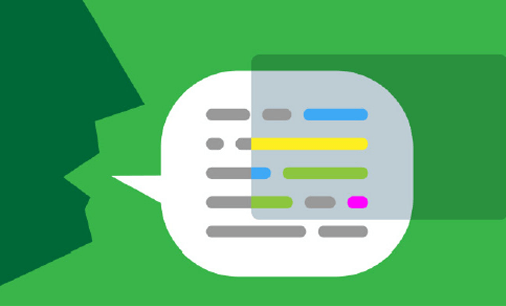 The results aren’t perfect, but
Google’s translator is able to retain
the voice and tone of the original
speaker. It can do this because it converts
audio input directly to audio output
without any intermediary steps.
In contrast, traditional translational
systems convert audio into text, translate
the text, and then resynthesize the
audio, losing the characteristics of the
original voice along the way.
The new system, dubbed the Translatotron,
has three components, all
of which look at the speaker’s audio
spectrogram —a visual snapshot of the
frequencies used when the sound is
playing, often called a voiceprint. The
first component uses a neural network
trained to map the audio spectrogram
in the input language to the audio
spectrogram in the output language.
The second converts the spectrogram
into an audio wave that can be played.
The third component can then layer
the original speaker’s vocal characteristics
back into the final audio output.
Not only does this approach produce
more nuanced translations by
retaining important nonverbal cues,
but in theory it should also minimize
translation error, because it reduces
the task to fewer steps. Translatotron
is currently a proof of concept. During
testing, the researchers trialed the
system only with Spanish-to-English
translation, which ... Read full text and listen
to some samples:
The results aren’t perfect, but
Google’s translator is able to retain
the voice and tone of the original
speaker. It can do this because it converts
audio input directly to audio output
without any intermediary steps.
In contrast, traditional translational
systems convert audio into text, translate
the text, and then resynthesize the
audio, losing the characteristics of the
original voice along the way.
The new system, dubbed the Translatotron,
has three components, all
of which look at the speaker’s audio
spectrogram —a visual snapshot of the
frequencies used when the sound is
playing, often called a voiceprint. The
first component uses a neural network
trained to map the audio spectrogram
in the input language to the audio
spectrogram in the output language.
The second converts the spectrogram
into an audio wave that can be played.
The third component can then layer
the original speaker’s vocal characteristics
back into the final audio output.
Not only does this approach produce
more nuanced translations by
retaining important nonverbal cues,
but in theory it should also minimize
translation error, because it reduces
the task to fewer steps. Translatotron
is currently a proof of concept. During
testing, the researchers trialed the
system only with Spanish-to-English
translation, which ... Read full text and listen
to some samples:
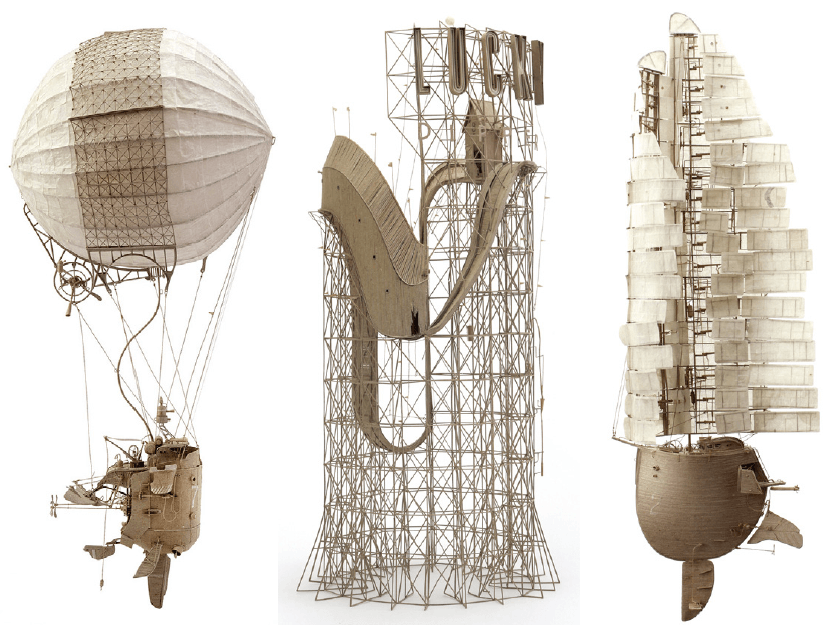 Australian sculptor
and filmmaker Daniel
Agdag builds fictionalized
architectural objects that
could find their home in the
sky, on land, or under the
sea. The cardboard, timber,
and hand-blown glass structures
are inspired by the
hidden mechanics found in
everyday industrial forms,
and consist of miniature
models of fans, gears, and
pumps. Inflated balloons
like The Southeasterly carry
small ship-like vessels, and
a 2018 work titled The
Second State looks like an
early roller coaster model
complete with billboard-like
signage that spells out the
word “LUCKY.”
Agdag received a Master’s
degree in Film and Television
from the Victorian
College of the Arts in 2007.
His recent solo exhibition
States wrapped at Messums
in Wilshire on June
30, 2019. You can and see
more of Agdag’s sculptural
objects on his website and
Instagram.
Australian sculptor
and filmmaker Daniel
Agdag builds fictionalized
architectural objects that
could find their home in the
sky, on land, or under the
sea. The cardboard, timber,
and hand-blown glass structures
are inspired by the
hidden mechanics found in
everyday industrial forms,
and consist of miniature
models of fans, gears, and
pumps. Inflated balloons
like The Southeasterly carry
small ship-like vessels, and
a 2018 work titled The
Second State looks like an
early roller coaster model
complete with billboard-like
signage that spells out the
word “LUCKY.”
Agdag received a Master’s
degree in Film and Television
from the Victorian
College of the Arts in 2007.
His recent solo exhibition
States wrapped at Messums
in Wilshire on June
30, 2019. You can and see
more of Agdag’s sculptural
objects on his website and
Instagram.
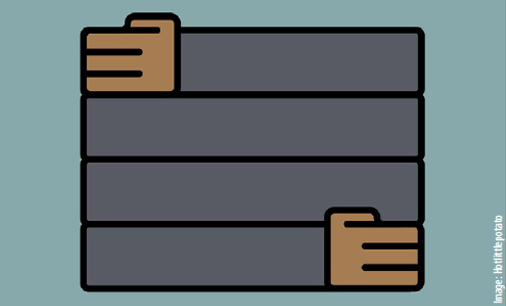 It was late last year, when I finally surrendered
to the fatigue. The months
preceding had been besieged by nonstop
work, paralyzing anxiety, and what
felt like a gushing waterfall of stress. I
was 30, and felt increasingly and exponentially
overwhelmed by the dizzying
pace I thought I needed to maintain in
order to succeed at adulthood.
I began experiencing phantom chest
pains and periodic breathing aberrations
that made it hard to inhale and
exhale for a sustained period of time.
After a chest x-ray revealed that there
were no maladies at work, my doctor
determined it was most likely the result
of constant stress, which had begun to
compound in my body. She prescribed
an inhaler as one course of treatment
(as a child I suffered from asthma). The
other avenue to well-being would prove
much more intricate: “You’re exhausted,”
she told me. “You have to rest.” ...
How I would go about attaining rest
—which, I should say, was not solely
a matter of sleep— was not immediately
clear or as easily realized in the
subsequent months. ... Escape and
preservation may overlap, but they’re
not synonymous. The real question
in front of me was larger, vaguer, and
just as elusive: How could I better take
care of myself in the face of a constant
barrage of news that was being shoved
into my life from television and Twitter
and push alerts? How could I shut out
the noise?
It’s one thing to stay abreast of what ...
Read full text:
Read full text:
It was late last year, when I finally surrendered
to the fatigue. The months
preceding had been besieged by nonstop
work, paralyzing anxiety, and what
felt like a gushing waterfall of stress. I
was 30, and felt increasingly and exponentially
overwhelmed by the dizzying
pace I thought I needed to maintain in
order to succeed at adulthood.
I began experiencing phantom chest
pains and periodic breathing aberrations
that made it hard to inhale and
exhale for a sustained period of time.
After a chest x-ray revealed that there
were no maladies at work, my doctor
determined it was most likely the result
of constant stress, which had begun to
compound in my body. She prescribed
an inhaler as one course of treatment
(as a child I suffered from asthma). The
other avenue to well-being would prove
much more intricate: “You’re exhausted,”
she told me. “You have to rest.” ...
How I would go about attaining rest
—which, I should say, was not solely
a matter of sleep— was not immediately
clear or as easily realized in the
subsequent months. ... Escape and
preservation may overlap, but they’re
not synonymous. The real question
in front of me was larger, vaguer, and
just as elusive: How could I better take
care of myself in the face of a constant
barrage of news that was being shoved
into my life from television and Twitter
and push alerts? How could I shut out
the noise?
It’s one thing to stay abreast of what ...
Read full text:
Read full text:
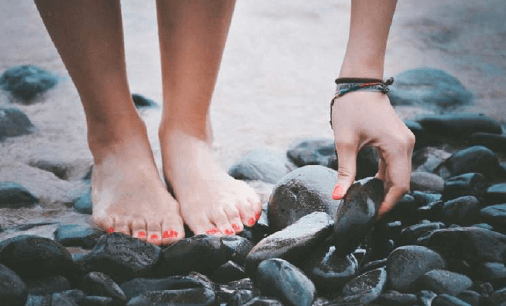 For many people, simple sensations
such as the gentle caress of a
loved one or walking barefoot through
the grass feel pleasant. For individuals
with autism, the feeling of light pressure
on the skin may be perceived as
aversive or even cringe-inducing. ...
“We actually have two senses of
touch that talk to each other but are
set up physiologically to operate very
independently of each other,” said
Carissa Cascio, PhD, associate professor
of Psychiatry and Behavioral Sciences
at Vanderbilt University Medical
Center. “Discriminative touch, which
is mediated by receptors that conduct
signals quickly, is used to help us
manipulate things with our hands. We
use it to determine the weight of objects
and how strong of a grip we need
to pick something up.” By contrast,
affective touch relays signals slowly
and conveys information about pain
and temperature. But recent evidence
shows that the fibers activated through
this type of touch may also relay emotionally
meaningful touch, such as a
soft stroke on the arm.
When comparing brain responses to
both types of touch in individuals with
and without autism, the groups showed
little variation in response to discriminative
touch, but reactions to affective
touch proved remarkably different. ...
Read full text:
For many people, simple sensations
such as the gentle caress of a
loved one or walking barefoot through
the grass feel pleasant. For individuals
with autism, the feeling of light pressure
on the skin may be perceived as
aversive or even cringe-inducing. ...
“We actually have two senses of
touch that talk to each other but are
set up physiologically to operate very
independently of each other,” said
Carissa Cascio, PhD, associate professor
of Psychiatry and Behavioral Sciences
at Vanderbilt University Medical
Center. “Discriminative touch, which
is mediated by receptors that conduct
signals quickly, is used to help us
manipulate things with our hands. We
use it to determine the weight of objects
and how strong of a grip we need
to pick something up.” By contrast,
affective touch relays signals slowly
and conveys information about pain
and temperature. But recent evidence
shows that the fibers activated through
this type of touch may also relay emotionally
meaningful touch, such as a
soft stroke on the arm.
When comparing brain responses to
both types of touch in individuals with
and without autism, the groups showed
little variation in response to discriminative
touch, but reactions to affective
touch proved remarkably different. ...
Read full text:
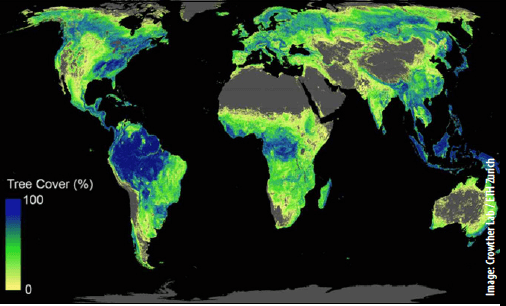
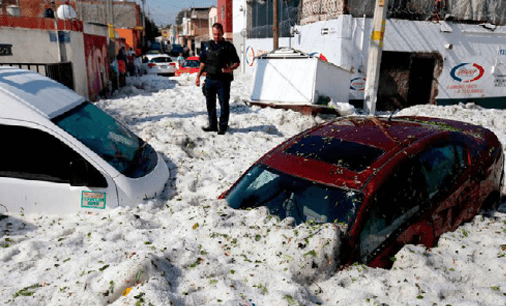 The town of Gallargues-le-
Montueux, on the ride from Montpellier
to Marseille along France’s Mediterranean
coast, got the worst of the
heat: over 114 degrees Fahrenheit, even
hotter than during an infamous 2003
French heat wave. The whole country
—the whole continent— sweltered
through eye-popping, Aperol spritz
–defying, asphalt-crumbling temperatures
this past week, capping a month
that European satellite data showed was
the hottest June in Europe since people
started keeping track. France cooked;
Spain hunkered down under wildfires
that burned thousands of acres.
Meanwhile, Antarctic sea ice is melting
faster than anyone predicted. The
region around the Mississippi River
in the midwestern US is still dealing
with floods on a scale unseen since the
catastrophic levels of 1993. A heat wave
in Northern California roasted tens of
thousands of Bodega Bay mussels in
their shells. ... In Guadalajara, Mexico,
a freakishly large hailstorm followed
by torrential rains left the mountain
town digging out from under three
feet of ice. And after Seattle endured a
month of unhealthy air quality due to
wildfires last summer, this year the city
announced that it would open “clean
air shelters” when the fires start again,
five buildings kitted out with expensive
filters, open to people who don’t have a
safe place to, you know, breathe. ...
The town of Gallargues-le-
Montueux, on the ride from Montpellier
to Marseille along France’s Mediterranean
coast, got the worst of the
heat: over 114 degrees Fahrenheit, even
hotter than during an infamous 2003
French heat wave. The whole country
—the whole continent— sweltered
through eye-popping, Aperol spritz
–defying, asphalt-crumbling temperatures
this past week, capping a month
that European satellite data showed was
the hottest June in Europe since people
started keeping track. France cooked;
Spain hunkered down under wildfires
that burned thousands of acres.
Meanwhile, Antarctic sea ice is melting
faster than anyone predicted. The
region around the Mississippi River
in the midwestern US is still dealing
with floods on a scale unseen since the
catastrophic levels of 1993. A heat wave
in Northern California roasted tens of
thousands of Bodega Bay mussels in
their shells. ... In Guadalajara, Mexico,
a freakishly large hailstorm followed
by torrential rains left the mountain
town digging out from under three
feet of ice. And after Seattle endured a
month of unhealthy air quality due to
wildfires last summer, this year the city
announced that it would open “clean
air shelters” when the fires start again,
five buildings kitted out with expensive
filters, open to people who don’t have a
safe place to, you know, breathe. ...
 Governor Gavin Newsom signed
the Creating a Respectful and
Open Workplace (Crown) Act into law,
prohibiting employers and schools
from enforcing rules against hairstyles
including afros, braids, twists, and
locks. Workplace policies that prohibit
such styles have serious economic and
health consequences, especially for
black individuals, the bill said.
“In a society in which hair has
historically been one of many determining
factors of a person’s race, and
whether they were a second-class
citizen, hair today remains a proxy
for race,” the bill said. “Therefore,
hair discrimination targeting hairstyles
associated with race is racial
discrimination.”
Instances of people of color facing
discrimination in school and the
workplace over their hair have gained
visibility in recent years, as a movement
among black women to wear
natural styles has grown.
In 2013, BP fired a top executive for
wearing what one colleague called “ethnic
hairstyles” including twists, braids,
and cornrows. In 2018, an Alabama
woman sued after a company required
her to cut her locks to get a job. Also
that year, a woman said her 14-year-old
son was sent home from his school in
Fresno, California, because of the way
his head was shaved. ...
Read full text:
Governor Gavin Newsom signed
the Creating a Respectful and
Open Workplace (Crown) Act into law,
prohibiting employers and schools
from enforcing rules against hairstyles
including afros, braids, twists, and
locks. Workplace policies that prohibit
such styles have serious economic and
health consequences, especially for
black individuals, the bill said.
“In a society in which hair has
historically been one of many determining
factors of a person’s race, and
whether they were a second-class
citizen, hair today remains a proxy
for race,” the bill said. “Therefore,
hair discrimination targeting hairstyles
associated with race is racial
discrimination.”
Instances of people of color facing
discrimination in school and the
workplace over their hair have gained
visibility in recent years, as a movement
among black women to wear
natural styles has grown.
In 2013, BP fired a top executive for
wearing what one colleague called “ethnic
hairstyles” including twists, braids,
and cornrows. In 2018, an Alabama
woman sued after a company required
her to cut her locks to get a job. Also
that year, a woman said her 14-year-old
son was sent home from his school in
Fresno, California, because of the way
his head was shaved. ...
Read full text:
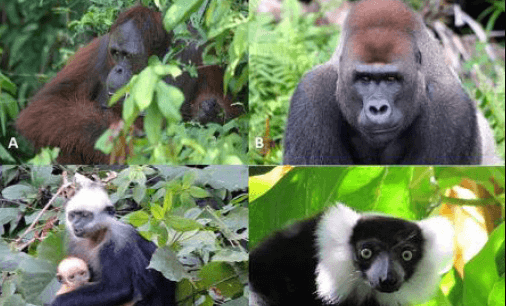 According to a peer-reviewed
journal, the economic benefits of
commodity export for primate habitat
countries has been limited relative to
the extreme environmental costs of
pollution, habitat degradation, loss of
biodiversity, continued food insecurity,
and the threat of emerging disease.
This recent study was published in the
Journal PeerJ –the Journal of Life and
Environmental Science.
The distribution of the world's
primate fauna in the Neotropics,
Africa, and South and Southeast Asia
represents an essential global component
of the land-based biodiversity of
the Earth. The activities and presence
of primates support a range of tropical community-wide ecological
functions and services that provide
vital resources to natural ecosystems,
including local human populations.
It is so alarming now that extinction
threatens around 60 percent of primate
species and 75 percent of them
have declining populations as a result
of escalating anthropogenic pressures
resulting in deforestation, habitat degradation,
and increased spatial conflict
between an expanding human society
and the natural range of primates.
Also, the research found out that
growing market ...
According to a peer-reviewed
journal, the economic benefits of
commodity export for primate habitat
countries has been limited relative to
the extreme environmental costs of
pollution, habitat degradation, loss of
biodiversity, continued food insecurity,
and the threat of emerging disease.
This recent study was published in the
Journal PeerJ –the Journal of Life and
Environmental Science.
The distribution of the world's
primate fauna in the Neotropics,
Africa, and South and Southeast Asia
represents an essential global component
of the land-based biodiversity of
the Earth. The activities and presence
of primates support a range of tropical community-wide ecological
functions and services that provide
vital resources to natural ecosystems,
including local human populations.
It is so alarming now that extinction
threatens around 60 percent of primate
species and 75 percent of them
have declining populations as a result
of escalating anthropogenic pressures
resulting in deforestation, habitat degradation,
and increased spatial conflict
between an expanding human society
and the natural range of primates.
Also, the research found out that
growing market ...

 Helps
users overcome
their
fear of missing
out with
three practical,
red items:
a whistle, a
compass and
a flashlight.
By Lara Défayes.
*fear of
missing out.
www.laradefayes.
ch
Helps
users overcome
their
fear of missing
out with
three practical,
red items:
a whistle, a
compass and
a flashlight.
By Lara Défayes.
*fear of
missing out.
www.laradefayes.
ch
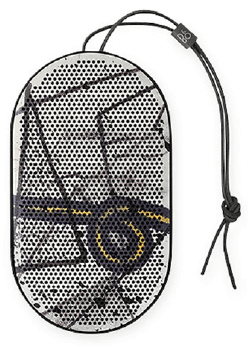 Bang & Olufsen Bluetooth
Speaker featuring artwork by
David Lynch. store.moma.org
Bang & Olufsen Bluetooth
Speaker featuring artwork by
David Lynch. store.moma.org
 This portable flying camera
uses face recognition technology
to follow and film your
hands-free journeys while
cycling, running, strolling and
more. store.moma.org
This portable flying camera
uses face recognition technology
to follow and film your
hands-free journeys while
cycling, running, strolling and
more. store.moma.org
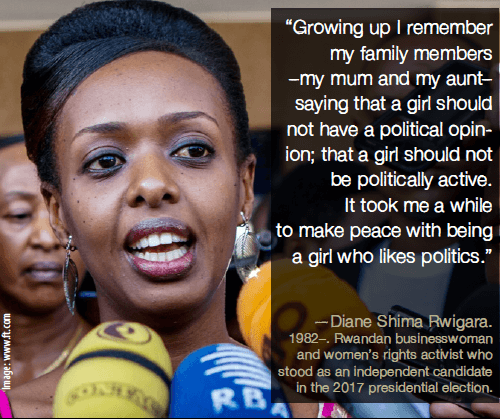 “Growing up I remember
my family members
–my mum and my aunt–
saying that a girl should
not have a political opinion;
that a girl should not
be politically active.
It took me a while
to make peace with being
a girl who likes politics.”
“Growing up I remember
my family members
–my mum and my aunt–
saying that a girl should
not have a political opinion;
that a girl should not
be politically active.
It took me a while
to make peace with being
a girl who likes politics.”
 The AIU Distance Learning Bachelor
of Science in Community Development
program will be a custommade
program, designed just for you by
you and your academic advisor. This
flexibility to meet student needs is seldom
found in other distance learning
programs. Our online program does not
require all students to take the same
subjects/courses, use the same books,
or learning materials. Instead, the
online Bachelor program curriculum
is designed individually by the student
and academic advisor. It specifically
addresses individual strengths and
weaknesses with respect to market
opportunities in the student’s major
and intended field of work. Understanding
that industry and geographic
factors should influence the content of
the curriculum instead of a standardized
one-fits-all design is the hallmark
of AIU’s unique approach to adult education.
This philosophy addresses the
dynamic and constantly changing environment
of working professionals by
helping adult students in reaching their
professional and personal goals within
the scope of the degree program
The AIU Distance Learning Bachelor
of Science in Community Development
program will be a custommade
program, designed just for you by
you and your academic advisor. This
flexibility to meet student needs is seldom
found in other distance learning
programs. Our online program does not
require all students to take the same
subjects/courses, use the same books,
or learning materials. Instead, the
online Bachelor program curriculum
is designed individually by the student
and academic advisor. It specifically
addresses individual strengths and
weaknesses with respect to market
opportunities in the student’s major
and intended field of work. Understanding
that industry and geographic
factors should influence the content of
the curriculum instead of a standardized
one-fits-all design is the hallmark
of AIU’s unique approach to adult education.
This philosophy addresses the
dynamic and constantly changing environment
of working professionals by
helping adult students in reaching their
professional and personal goals within
the scope of the degree program
 Atlantic International University is accredited by the Accreditation Service for International
Schools, Colleges and Universities (ASIC). ASIC Accreditation is an internationally
renowned quality standard for colleges and universities. Visit ASIC’s Directory of Accredited
Colleges and Universities. ASIC is a member of CHEA International Quality Group
(CIQG) in the USA, an approved accreditation body by the Ministerial Department of the Home Office
in the UK, and is listed in the International Directory of the Council for Higher Education Accreditation
(CHEA). The University is based in the United States and was established by corporate charter in 1998.
Atlantic International University is accredited by the Accreditation Service for International
Schools, Colleges and Universities (ASIC). ASIC Accreditation is an internationally
renowned quality standard for colleges and universities. Visit ASIC’s Directory of Accredited
Colleges and Universities. ASIC is a member of CHEA International Quality Group
(CIQG) in the USA, an approved accreditation body by the Ministerial Department of the Home Office
in the UK, and is listed in the International Directory of the Council for Higher Education Accreditation
(CHEA). The University is based in the United States and was established by corporate charter in 1998.
 In some cases, accredited colleges
may not accept for transfer courses and degrees
completed at unaccredited colleges, and some
employers may require an accredited degree as
a basis for eligibility for employment. Potential
students should consider how the above may affect
their interests, AIU respects the unique rules and
regulations of each country and does not seek to
influence the respective authorities. In the event
that a prospective student wishes to carry out any
government review or process in regards to his
university degree, we recommend that the requirements
of such are explored in detail with the relevant
authorities by the prospective student as the
university does not intervene in such processes.
AIU students can be found in over 180 countries,
they actively participate and volunteer
in their communities as part of their academic
program and have allocated thousands of service
hours to diverse causes and initiatives. AIU
programs follow the standards commonly used by
colleges and universities in the United States with
regards to the following: academic program
structure, degree issued, transcript, and
other graduation documents.
AIU graduation documents can include
an apostille and authentication from the
US Department of State to facilitate their
use internationally.
In some cases, accredited colleges
may not accept for transfer courses and degrees
completed at unaccredited colleges, and some
employers may require an accredited degree as
a basis for eligibility for employment. Potential
students should consider how the above may affect
their interests, AIU respects the unique rules and
regulations of each country and does not seek to
influence the respective authorities. In the event
that a prospective student wishes to carry out any
government review or process in regards to his
university degree, we recommend that the requirements
of such are explored in detail with the relevant
authorities by the prospective student as the
university does not intervene in such processes.
AIU students can be found in over 180 countries,
they actively participate and volunteer
in their communities as part of their academic
program and have allocated thousands of service
hours to diverse causes and initiatives. AIU
programs follow the standards commonly used by
colleges and universities in the United States with
regards to the following: academic program
structure, degree issued, transcript, and
other graduation documents.
AIU graduation documents can include
an apostille and authentication from the
US Department of State to facilitate their
use internationally.
 The School of Business and Economics
allows aspiring and practicing
professionals, managers, and entrepreneurs
in the private and public sectors
to complete a self paced distance
learning degree program of the highest
academic standard.
The ultimate goal is to empower
learners and help them take advantage
of the enormous array of resources
from the world environment in order
to eliminate the current continuum of
poverty and limitations.
Degree programs are designed for
those students whose professional experience has been in business,
marketing, administration, economics,
finance and management.
The School of Business and Economics
allows aspiring and practicing
professionals, managers, and entrepreneurs
in the private and public sectors
to complete a self paced distance
learning degree program of the highest
academic standard.
The ultimate goal is to empower
learners and help them take advantage
of the enormous array of resources
from the world environment in order
to eliminate the current continuum of
poverty and limitations.
Degree programs are designed for
those students whose professional experience has been in business,
marketing, administration, economics,
finance and management.
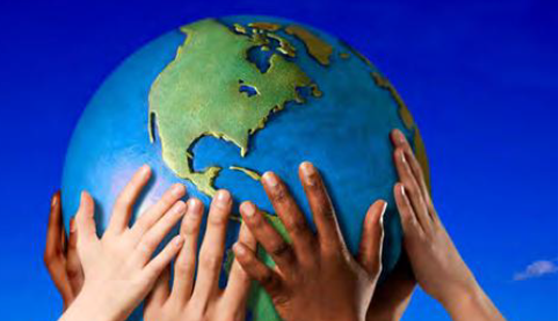 The School of Social and Human Studies
is focused on to the development of
studies which instill a core commitment
to building a society based on social and
economic justice and enhancing opportunities
for human well being.
The founding principles lie on the
basic right of education as outlined
in the Declaration of Human Rights.
We instill in our students a sense of
confidence and self reliance in their
ability to access the vast opportunities
available through information channels,
the world wide web, private, public,
nonprofit, and nongovernmental organizations in an ever expanding
global community.
Degree programs are aimed towards
those whose professional life has been
related to social and human behavior,
with the arts, or with cultural studies.
The School of Social and Human Studies
is focused on to the development of
studies which instill a core commitment
to building a society based on social and
economic justice and enhancing opportunities
for human well being.
The founding principles lie on the
basic right of education as outlined
in the Declaration of Human Rights.
We instill in our students a sense of
confidence and self reliance in their
ability to access the vast opportunities
available through information channels,
the world wide web, private, public,
nonprofit, and nongovernmental organizations in an ever expanding
global community.
Degree programs are aimed towards
those whose professional life has been
related to social and human behavior,
with the arts, or with cultural studies.
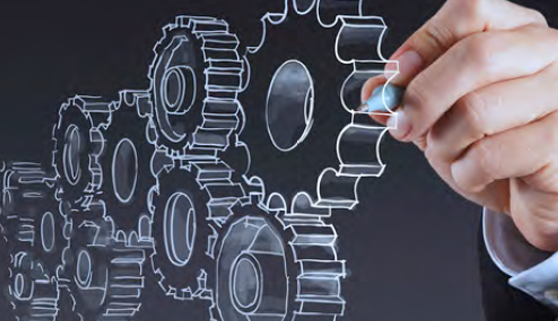 The School of Science and Engineering
seeks to provide dynamic, integrated,
and challenging degree programs
designed for those whose experience
is in industrial research, scientific production,
engineering and the general
sciences. Our system for research and
education will keep us apace with the
twenty-first century reach scientific
advance in an environmentally and
ecologically responsible manner to allow
for the sustainability of the human
population. We will foster among our
students a demand for ethical behavior,
an appreciation for diversity, an understanding
of scientific investigation,
The School of Science and Engineering
seeks to provide dynamic, integrated,
and challenging degree programs
designed for those whose experience
is in industrial research, scientific production,
engineering and the general
sciences. Our system for research and
education will keep us apace with the
twenty-first century reach scientific
advance in an environmentally and
ecologically responsible manner to allow
for the sustainability of the human
population. We will foster among our
students a demand for ethical behavior,
an appreciation for diversity, an understanding
of scientific investigation,
 With access to a global catalog created and maintained collectively by more than
9,000 participating institutions, AIU students have secured excellent research
tools for their study programs.
With access to a global catalog created and maintained collectively by more than
9,000 participating institutions, AIU students have secured excellent research
tools for their study programs.